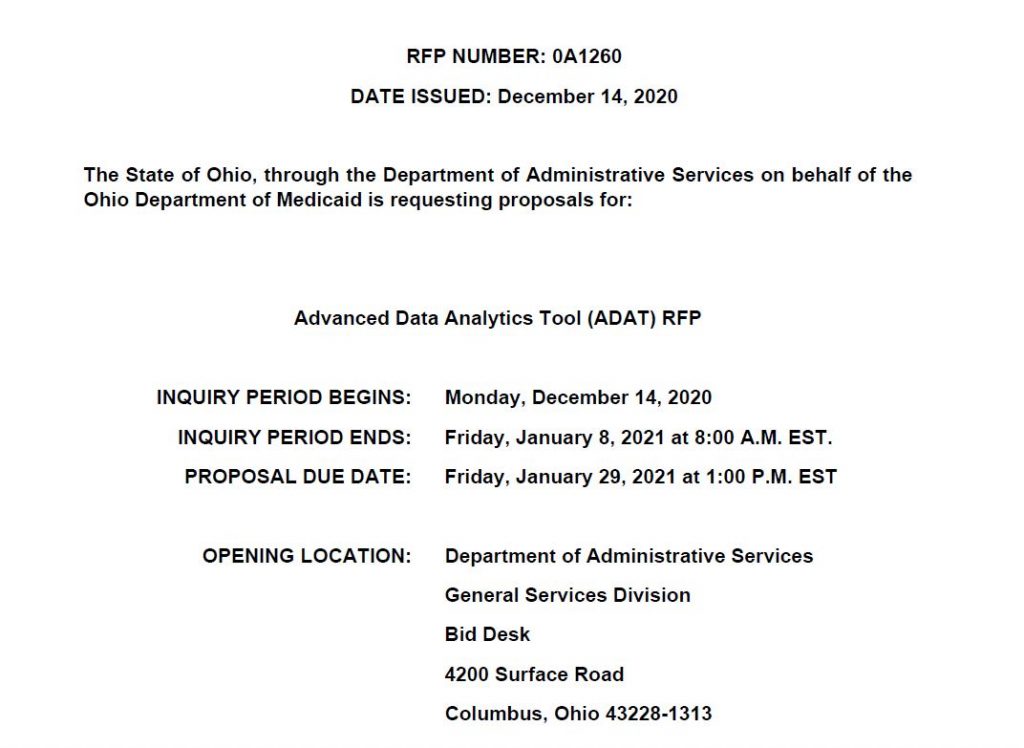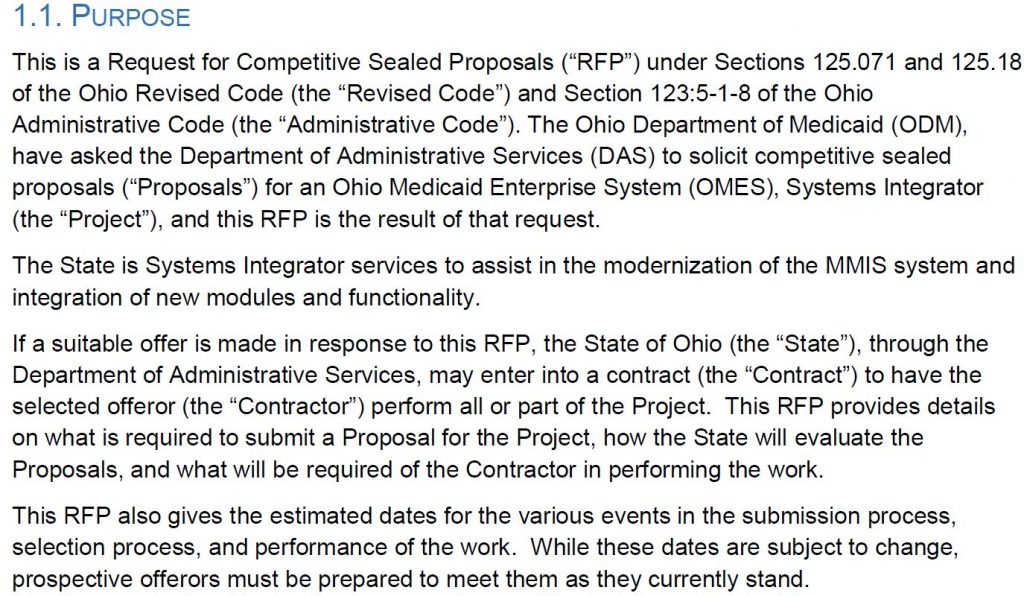MM Curator summary
Gainwell will become the new PBM in Ohio, beating out 5 other bidders including Express Scripts and Magellan.
The article below has been highlighted and summarized by our research team. It is provided here for member convenience as part of our Curator service.
Ohio’s grand quest to finally slay the dragon of overcharges by pharmacy benefit managers starts Monday with the rollout of a new $158 million contract by the state Medicaid agency.
The Buckeye State’s premise, a unique approach just approved by the federal government: It takes a PBM to beat a PBM.
Bearing the sword on behalf of the state is Gainwell Technologies, a single PBM newly hired to work on behalf of Ohio taxpayers. The company will replace the multibillion-dollar conglomerates such as CVS Caremark and Express Scripts that currently serve as middlemen in the prescription drug supply chain for 3 million poor or disabled Ohioans.
At last count, those privately run PBMs were making off with nearly a quarter billion dollars a year, charging up to six times the going industrial rate, a state consultant found.
Ohio Medicaid Director Maureen Corcoran said the switch to a single, state-controlled PBM alone will save roughly $150 million to $200 million per year. However, the new arrangement also would cost the state revenue, such as about $23 million from a tax on health insuring corporations that no longer could be collected. And additional staff must be hired to handle duties the agency is taking over from managed-care organizations.
The bottom line will be revealed when Gov. Mike DeWine unveils his budget on Feb. 1, she said.
How PBMs make money often has been called a “black box” because even outside experts cannot figure it out. The new setup is designed to “break open the black box and be better accountable for tax dollars,” Corcoran said.
Medicaid, funded jointly by the state and federal governments, covers about $3.5 billion worth of prescription drugs a year in Ohio. (It is separate from Medicare, a federal program that pays for health care of those 65 and older.)
“We will have a very-good-quality, experienced manager of these medications that will save the state money and will allow transparency about the care and the expenditures for this program that did not exist in the past,” Corcoran said.
Big changes for children, recipients on the way
Hiring Gainwell as Medicaid’s single PBM is one part of a huge restructuring of the state’s biggest agency that won’t be completed for another year. Still to come is the hiring of a pharmacy operational support vendor, designed to monitor the performance of Gainwell.
Also on the agenda is the OhioRise plan to cover specialized behavioral services for children with complex health needs. Those crushing expenses often aren’t covered by parents’ insurance, causing many to make the heart-breaking decision to voluntarily give up custody to the government so their children can be treated outside of Ohio. Thousands of other children are forced to live in group settings to get the care they need.
Starting in 2022, a federal waiver will allow the state to set up a specialized managed care organization with expertise in providing services for the most complex “multi-system” youth. Corcoran said the goal is to serve 50,000 children by the end of next year.
“We don’t have to take away custody; we can keep them in their family,” she said.
And likely the biggest state contract in history is set to be awarded later this month to winners of an 11-way competition to handle Medicaid’s managed care operations starting next year. The current contract, shared by six outfits, totals about $20 billion.
When what Corcoran calls a “new generation of Medicaid” is finally put in place, both Medicaid recipients and health-care providers will notice the difference.
One simple change will occur when a person on Medicaid changes managed-care plans. Now, they must make sure that their preferred Pharmacy A is on the new plan, or whether they must change to Pharmacy B. But with the state using a new centralized credentialing setup to decide which pharmacies and which drugs are covered, there will be no difference when making the switch.
On the other end of the drug-supply chain, doctors and pharmacists — which currently must fill out as many as seven similar forms to make sure they can get Medicaid reimbursement, a process that can take months — will need to complete only one standardized state form.
Big PBM, lobbyist’s favorite lose out
The competition for the single PBM contract started out with six companies. But three — including Express Scripts, the second-biggest in the country — were eliminated along the way.
One of the final three considered was MagellanRx Management, which was represented by longtime lobbyist Neil Clark when then-House Speaker Larry Householder inserted the single PBM plan into the state budget in mid-2019. Both Clark and Householder are now under federal indictment for a what authorities say was a $60 million scheme culminating about the same time to build the Perry County Republican’s political power and pass a $1 billion bailout of Ohio’s two nuclear power plants via House Bill 6.
Corcoran noted that Householder’s original budget language was revised before the bill was passed, and that Gov. DeWine vetoed several specific mandates about the procurement process.
Deputy Medicaid Director Steven Voigt said the competition “was very fair, diligent, with plenty of safeguards. Every bidder had the same chance.”
Gainwell wound up with the highest score from the panel that evaluated the proposals, and the company also offered the lowest price.
Gainwell or its predecessor has received 16 Centers for Medicare and Medicaid Services certifications since 2010 — more than all other vendors within the same period, the Ohio Medicaid department said. It provides pharmacy services for 29 state Medicaid programs, and implemented 21 Medicaid system modules in eight states.
“They are not like CVS or Express Scripts or whatever; they are more of an entity that has specialized in IT, clinical support, not like traditional PBMs focus on drug market,” Corcoran said.
“They have all of the skills and tools and requirements that are needed. The combination of their pharmacy, various types of pharmacy experiences across 29 (states), means they have demonstrated boots on the ground experience in every element of this PBM design that we have selected.”
Gainwell would be paid $158.2 million if it remains for the entire 7.5 years of the state contract. The pact, which must be approved by the bipartisan state Controlling board, includes financial penalties and an “out” for the state if the new single PBM does not measure up to state standards, Corcoran said.
Gainwell, which says it has more than 7,500 employees, was created on Oct. 1 by the $5 billion sale of DXC Technology’s U.S. state and local health and human services business to Veritas Capital, a leading investor in Gainwell.
“As a construct of the words ‘gain’ and ‘well,’ the name reflects the company’s mission to empower its clients through technology in order to deliver health and human services programs that enable successful health outcomes for beneficiaries nationwide,” Veritas said in a Sept. 16 press release.
Clipped from: https://www.dispatch.com/story/news/healthcare/2021/01/11/pharmacy-benefit-managers-ohio-medicaid-saving-pbm/6556793002/







